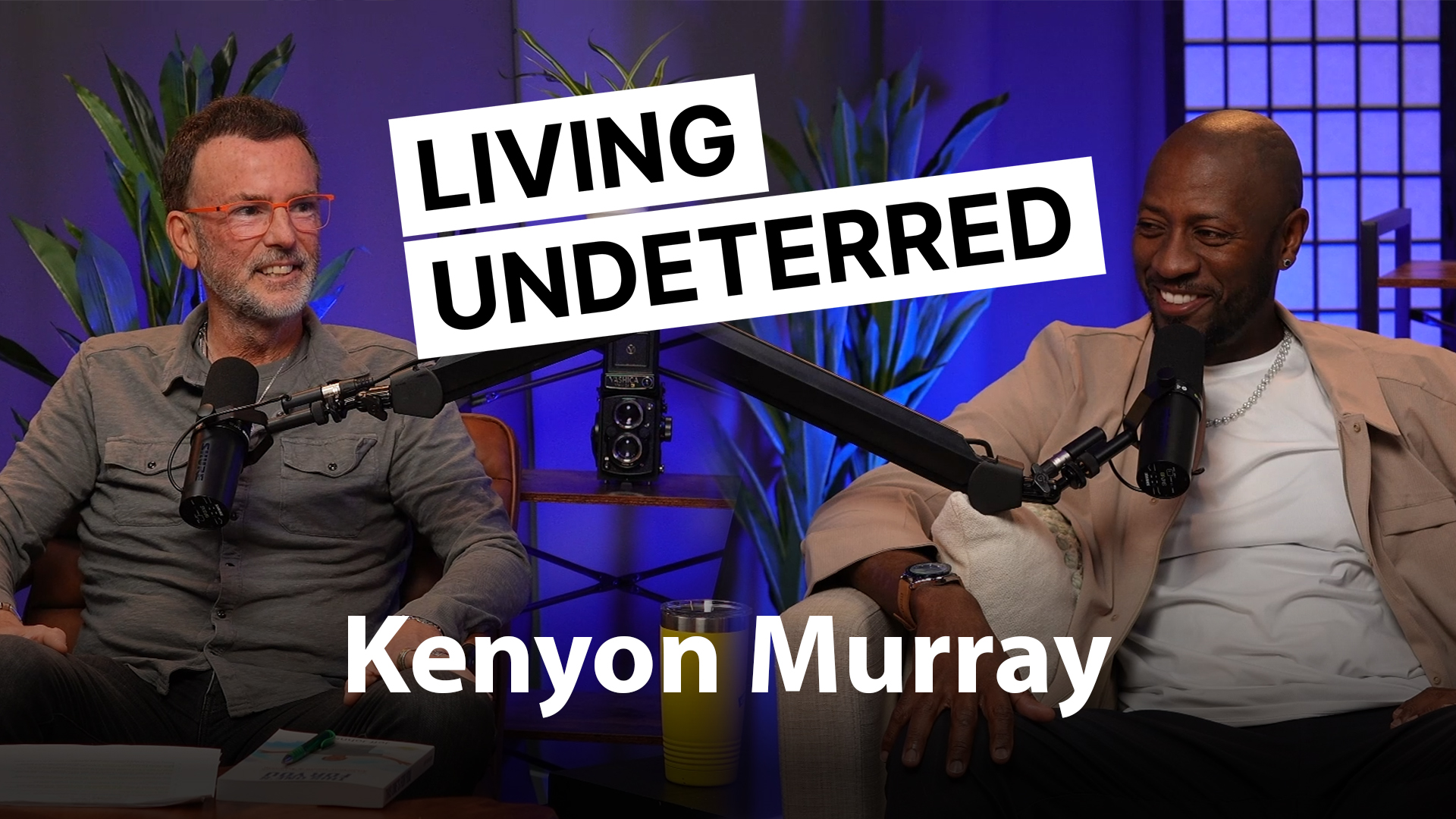
Jeffrey Johnston
January 15, 2026
•
6 min read

In this episode of Living Undeterred, Jeff sits down with longtime friend, father, coach, and community leader Kenyon Murray for a deeply personal conversation about life beyond the game. Together, they explore how young athletes—and their families—can build identity, resilience, and purpose that outlasts any scoreboard. From financial literacy and NIL pressure to mental health and the power of faith, Kenyon shares the lessons he's learned as a player, a parent, and a mentor. This isn’t just about basketball—it’s about helping the next generation thrive, on and off the court.
Watch the full episode here:
A: Kenyon Murray: Absolutely. I played basketball at Iowa from '92 to '96. Your dad, Dr. Dave Johnston, was actually our team doctor. That’s where our connection began. Later, our families became close through our kids and even our wives working together. Now, Michelle and I are empty nesters, and we're working on building a wellness-focused sports complex in our community that combines mental wellness, financial literacy, and holistic family resources.
A: Kenyon: Because NIL (Name, Image, Likeness) deals are now happening even at the high school level. Kids can earn serious money, but they’re not being taught how to manage it. It’s not just about the 1% who go pro. Financial stress affects everyone and is closely tied to mental health. Our goal is to support both kids and their families.
A: Kenyon: Exactly. Most kids won’t play professionally. If your identity is only wrapped up in being an athlete, it can be devastating when that ends. That’s why we’re incorporating programs like Brightn and Junior Achievement, to teach career readiness, wellness, and self-awareness early on.
A: Kenyon: It’s intense. Pressure from parents, expectations, social media comparison—it all adds up. We're trying to create an ecosystem that helps kids know who they are without needing validation from outside sources. It’s about giving them the tools to navigate different life chapters.
A: Kenyon: It’s everything. We have to stop waiting for problems to happen and start preparing kids with the mental skills to avoid them. We want to get upstream, as Desmond Tutu said—stop pulling people out of the river and ask why they’re falling in. That’s what Brightn is doing.
A: Kenyon: I grew up in Battle Creek, Michigan, raised by my mom and grandma. They taught me balance—between education, faith, and being well-rounded. I didn’t even play basketball seriously until eighth grade; before that, I played classical viola.
A: Kenyon: Definitely. We need to help kids see themselves as one of one—unique, not in comparison with anyone else. Social media makes that hard. Comparison feeds insecurity. We need to teach them that their value isn’t based on likes or stats.
A: Kenyon: I love that. For me, it’s about recognizing that I’m still learning, still evolving. And being kind to the teenage or young adult version of myself who made mistakes. We don’t beat up our younger selves—so why do we do it to our adult selves?
A: Kenyon: For me, faith means living each day as close as I can to the example of Jesus. It’s about treating people well, showing grace, and trusting that my actions ripple out. It’s not about being perfect. It’s about being real.
A: Kenyon: Set boundaries. Be intentional with your time. You don’t have to do everything in one day. Sometimes just sitting with yourself, reading, or being still is enough. And let go of the pressure to check every box.
A: Kenyon: Look in the mirror. Get honest. Growth starts with micro-decisions. Stop blaming others for where you are. Start building the life you want—step by step. And know your actions matter. Someone is always watching, and you never know who you’re inspiring.
Jeff: Kenyon, thank you for sharing your heart, your story, and your vision. The world needs more of what you’re building.
Kenyon’s message is clear: growth takes work, but it starts with the small choices we make every day. Whether you're raising kids, mentoring young athletes, or navigating your own next chapter, his perspective on faith, boundaries, and self-leadership is both grounding and inspiring. To live undeterred, as Kenyon puts it, is to own your story, support your community, and keep evolving—one decision at a time.
Ready to take charge of your mental wellness? Try Brightn free today.
